Ensuring Environmental Sustainability in LAC
The Latin America and Caribbean (LAC) region is home to 40% of the world’s biodiversity and one-third of global fresh water sources. Having been struck over the past decades with increasingly extreme weather events, including flooding, hurricanes and prolonged draught, the region has proven to be also one of the world’s most vulnerable regions to the effects of climate change.
The COVID-19 pandemic underscored the critical need to align environmental policy with the economic recovery and enhanced social protection measures. In this context, environmental and climate issues have gained greater prominence on the LAC region's political agenda. The LAC Regional Programme (LACRP) can play an important role in supporting regional efforts in the implementation of environmental sustainability initiatives and the advancement on the 2030 Agenda for Sustainable Development.
The LACRP introduced the inlcusion of the Environmental Sustainability Priortity in December 2021, during the 13th Steering Group Meeting. This priority was added to the three original thematic pillars that coincide with the most pressing challenges of the region: increasing productivity, enhancing social inclusion and strengthening institutions. During the 2022-2025 cycle, the LACRP will ensure that projects aiming to support these three priorities also consider environmental sustainability. The programme will also facilitate regional policy dialogues between OECD and LAC countries on issues related to environmental sustainability priorities, such as promoting effective action on climate neutrality and resilience. It will also produce new indicators and regional analyses to contribute to an evidence-based policy debate in the region.
Key Publication
While many countries of Latin America and the Caribbean (LAC) have committed to achieving climate neutrality and building resilience, translating these commitments into actions is imperative. To overcome challenges and grasp the opportunities associated with a transition towards climate resilience and neutrality, this report proposes an Action Plan, with 40 key policy recommendations.
Note: This document, as well as any data and map included herein, are without prejudice to the status of or sovereignty over any territory, to the delimitation of international frontiers and boundaries and to the name of any territory, city or area.
Key events
- 29 November 2023 | COP28 Side-event: Climate change action in Latin America and the Caribbean: Key priorities and good practices
Relevant topics
Green Growth and Key Environmental Indicators
The OECD already provides countries with a series of dashboards and databases to track progress towards climate objectives through the Climate Action Dashboard of the OECD International Programme for Action on Climate (IPAC); to provide information on to provide information on policy instruments relevant for environmental protection and natural resource management, and to track COVID-19 recovery measures with likely environmental implications.
The OECD will support the development of effective and harmonised indicator frameworks in LAC to assess both growth prospects and environmental performance and to support more effective policy-making (development, coordination, implementation, evaluation, and communication.
Find more data and resources:
Enhancing Green Transition in LAC
The OECD project “Enhancing Green Transition in LAC: From Commitments to Action” was launched to implement the Environmental Sustainability priority of the OECD Latin America and the Caribbean Regional Programme (LACRP). The project is co-funded by the European Union (EU), through its Regional Facility for Development in Transition.
Under the project the following events have already been organised:
- The 2nd LAC Expert Workshop on Environmental Sustainability was held on 4 July 2023, and focused on "Climate change indicators for evidence-based policy making in Latin America and the Caribbean". The discussions looked at climate-related hazards in the region and how best to support evidence-based policy choices to address them, and allowed for an exchange of views and experiences on climate information and data gaps and needs with input on a possible way forward.
- The 3rd LAC Regional Policy Dialogue on Environmental Sustainability was held virtually on 9-10 March 2023, and focused on “Addressing Climate Change Adaptation in Latin America and the Caribbean”. The discussions highlighted the need to identify and better understand the region's adaptation capacity to climate change through nature-based solutions, as well as how to best support regional prevention and preparedness actions, including financing climate adaptation responses. The dialogue also focused on the need to integrate gender equality in climate adaptation actions.
- The 2nd LAC Regional Policy Dialogue on Environmental Sustainability was held virtually on 18-20 October 2022, and focused on “Enhancing Climate Finance and Promoting Technology Transfer in the LAC Region”. The discussions highlighted the need to focus more on access to information and data collection, especially concerning climate change adaptation; the need for capacity building for an effective use of climate and green financing; and for a set of green incentives to allow for technology transfers in LAC.
- An Expert Workshop on Priorities on Climate Neutrality and Resilience in LAC was organised on the 31 August 2022 bringing to the forefront suggestions on designing and implementing effective climate action to deliver on their national and joint environmental and climate commitments.
- Watch the replay.
- Watch the replay.
- On 18-19 November 2021, the OECD Latin America and Caribbean Regional Programme (LACRP) organised the first LAC Regional Policy Dialogue on Environmental Sustainability. The Dialogue served to discuss common priorities for an enhanced regional co-operation in the field of environmental sustainability, and identify the OECD’s value added with regard to other regional actors.
Clean Energy Finance and Investment Mobilisation
The OECD Clean Energy Finance and Investment Mobilisation (CEFIM) programme aims to strengthen domestic enabling conditions to attract finance and investments in renewables, energy efficiency and decarbonisation of industry (clean energy) in emerging economies. The programme supports countries in the development of policies and instruments to help scale up a pipeline of bankable clean energy projects.
- Read more about CEFIM work in Colombia
Environmental Performance Reviews in LAC
The OECD conducts country reviews, through a peer review framework, and presents policy recommendations to help the countries improve its environmental performance. It also presents thematic reviews based on topic or region, such as the report Biodiversity Conservation and Sustainable Use in Latin America.
recent reviews on the latin america region*
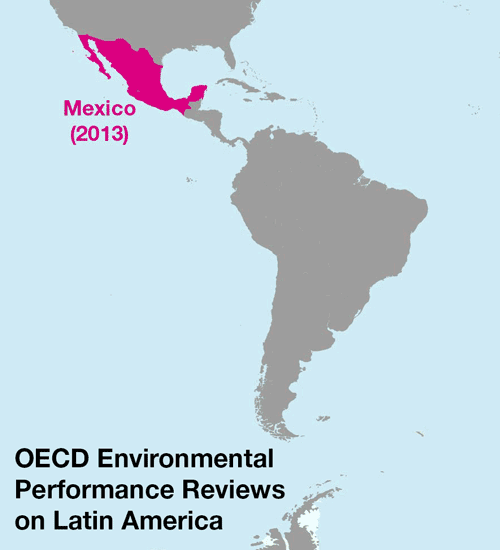
*Disclaimer: These documents, as well as any data and any map included therein, are without prejudice to the status of or sovereignty over any territory, to the delimitation of international frontiers and boundaries and to the name of any territory, city or area.
Further reading
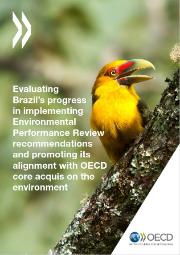 |
2021 REPORT ON BRAZIL'S PROGRESS ON EPR RECOMMENDATIONS AND ALIGNMENT TO OECD ENVIRONMENTAL ACQUIS This report examines Brazil’s alignment with 23 selected OECD legal instruments related to the environment. The legal instruments were primarily selected for their link to the recommendations of the 2015 OECD Environmental Performance Review (EPR) of Brazil. The report also looks at Brazil’s progress in implementing 13 out of the 53 EPR recommendations that are relevant to the OECD acquis. The substantive areas covered are the polluter-pays principle, environmental assessment, integrated pollution prevention and control, environmental performance of government, use of economic instruments and provision of environmental information, as well as water management, biodiversity conservation, energy and air pollution, transport and waste. The main objective of the report’s analysis and recommendations is to help Brazil improve its policies and practices in line with OECD standards. The report provides a brief overview of the legal instruments and the context and content of the relevant 2015 EPR recommendations. This overview is followed by a description of the relevant legal and policy framework in Brazil, recent changes to it, the state of their implementation and, where possible, evidence of their effectiveness. The report was made possible by financial support of the government of the United Kingdom. |


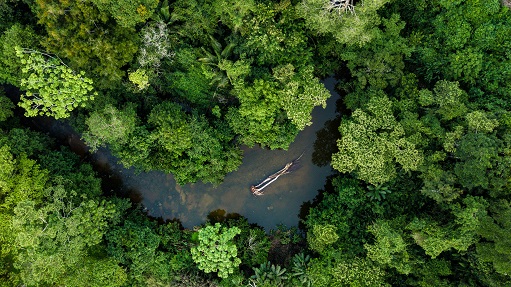
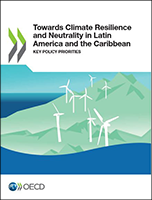
.png)
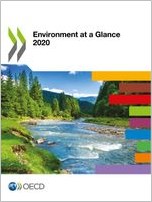

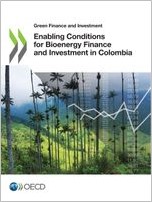
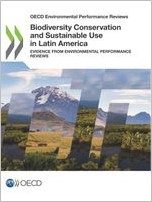
.png)